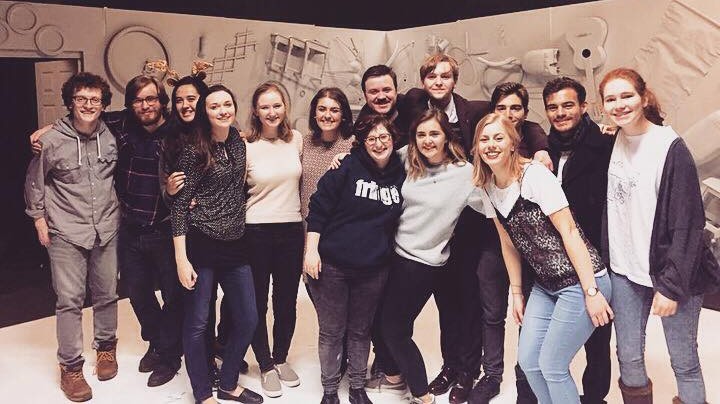Have you ever wondered what it would be like to rig lights in a theatre? Ever toyed with the idea of directing a play? Pondered what it might be like to get up on stage in front of hundreds of people? Longed to design and build an entire set? The Nottingham New Theatre is one of the biggest student-run groups at Nottingham, and the only student-run theatre in England, and if any of the above is true for you, come and get involved!
Season Launches are the best opportunity to see all of the roles available in our shows for that season. You will find out what plays are in the season, and they’ll all be looking for actors, technicians, designers, builders, and so on.
- In House Season Launch - 16th October, 2024
- Studio Season Launch - 30th October, 2024
To find out more about EdFringe 2022 please follow this link!
For all the latest updates, please do sign up to our mailing list!
With fifteen shows a semester, and dedicated casts and crews for each, there’s an opportunity for everyone!
Acting
At the New Theatre, we welcome all actors to be in up to two plays per semester and want to give as many opportunities to tread our boards. Whether you’ve never acted before, were the sheep in your Nativity, have done some school acting, are a seasoned pro at the RSC — or simply just dabble — please come along and audition.
Auditions
Each season holds open auditions over 2 days, and anyone can audition for free. Head to the audition room (or the theatre foyer if you’re not sure) and give it a go.
- When you arrive, you’ll be given a piece. Take this away and become familiar with it (most people take around 10-15 minutes).
- Come back and perform it for the team. You don’t need to learn it, just give it your best shot.
- That’s it! Take a rest before heading to your next audition.
It is a good idea to sign-up and audition for everything — provided you can do the show dates, of course! This means you will get more experience of auditions and stand a greater chance of being cast in a play.
Callbacks and casting happen over the weekend after auditions.

Who to talk to
If you have any questions about acting or auditioning, contact one of our Season Coordinators:
- Jimmy Pays, In-House Coordinator
- Abbie Foster, Studio Coordinator
- Harrison Martin, External Relations Manager
Key Dates
- EdFringe Callbacks - tbc
- EdFringe Auditions - tbc
- In House Auditions - 17th-18th October, 2024
- In House Callbacks - 19th October, 2024
- In House Casting - 20th October, 2024
- Studio Auditions - 31st October-1st November, 2024
- Studio Callbacks - 2nd November, 2024
- Studio Casting - 3rd November, 2024
Directing
Directing is full of challenges and great fun for anyone at the New Theatre. You can propose any play you like, innovation and new writing are encouraged.
Anything you can think of, we can stage: whether it’s physical, in the round, absurd, or in some weird building in the middle of town — we’d love to hear your ideas.
Directing at the Nottingham New Theatre has been a brilliant and life-changing, but don’t worry, there’s so much support every step of the way.
Directing at the NNT has meant working closely with some of the most talented people I’ve ever met – from actors, to sound and lighting designers, to brilliant stage managers. My advice to anyone thinking of proposing is – do it!
How to put on a play
- Decide on the play: It’s totally up to you! You can put on a play you’ve loved reading, watching, or being a part of elsewhere — or an original work!
- Decide on the season: We have four seasons that you can propose for: In House, Fringe, Edinburgh, and External, all with their own challenges to bear in mind. Have a think before you propose which is best for your show!
- Rights: It needs to be possible to get the rights to put the play on. The company to contact is usually written in the first few pages of the script.
- Propose! Fill in the proposal form and come on the day for a 15-minute Q&A from the committee. You can propose on your own or as a team (typically a director-producer pair). Afterwards, the committee go away and discuss: you’ll be phoned later that day with the decision.
Key Dates
- In House Proposal Deadline - 9th October, 2024
- Studio Proposal Deadline - 27th October, 2024
Best of luck!
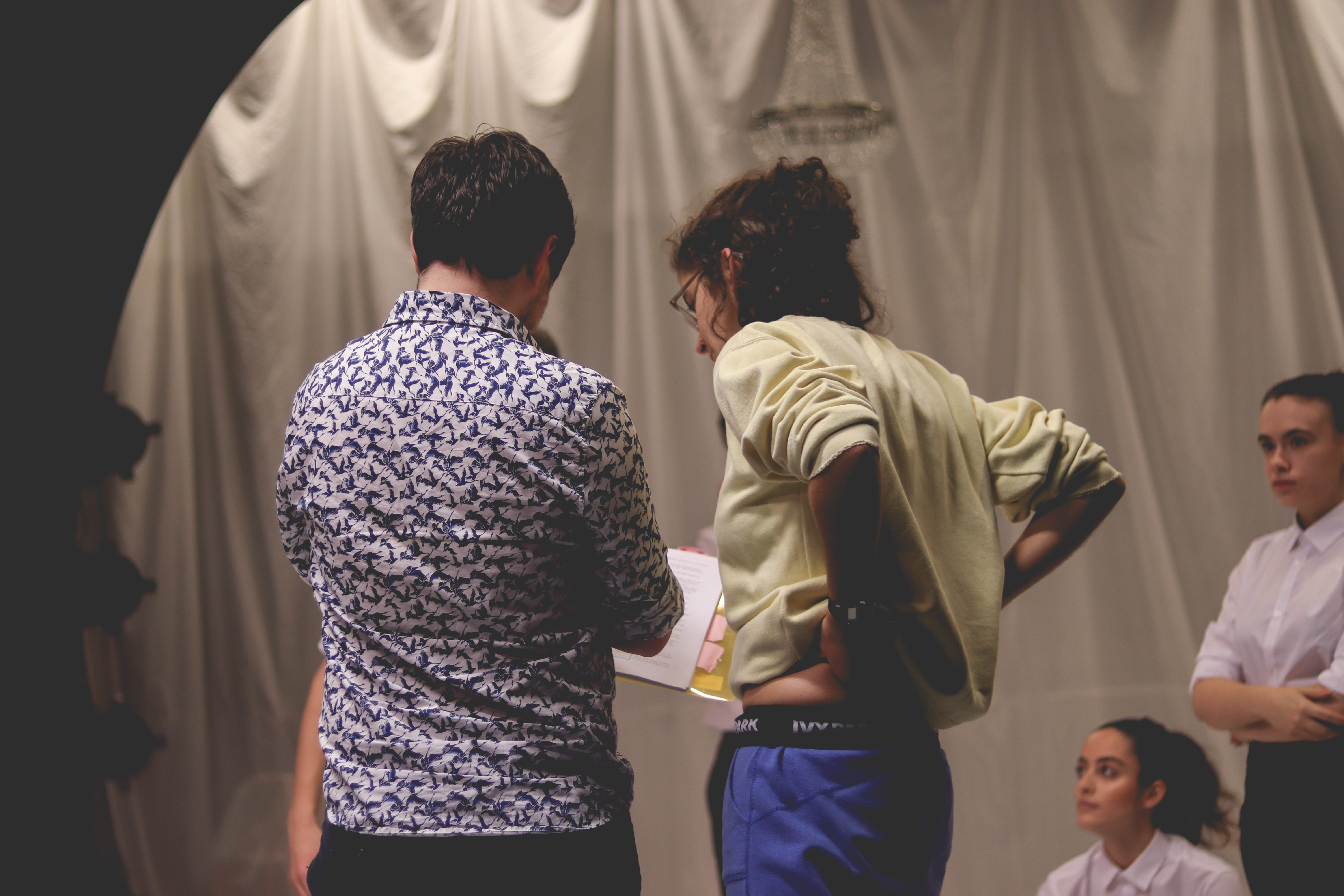
Who to talk to
If you have any questions about directing for any of our seasons, contact one of our Season Coordinators:
Producing
Are you an on-the-ball sort of person? Do you relish a job well done? Have you got what it takes to organise and manage the staging of an entire production? Not sure? The one way to find out is to produce a show!
A producer is responsible for delivering a good show, on time and on budget. They are the organisational powerhouse, doing everything from booking rooms for rehearsals to getting rights from publishers.
It’s fantastic fun, and if you like the sound of it, come on board. You can talk to proposing directors before proposals and join forces, or come to a Season Launch and find out who’s looking for a producer.
My favourite part of producing is finding the most cost-effective (and sometimes safest!) ways to bring to life the vision of the director. It allows you to be creative as well as presenting the challenge of thinking on your feet.
You are the glue holding everything together (sometimes quite literally) both on and off stage!
Who to talk to
If you have any questions about producing, contact one of our Season Coordinators:
Writing
Without playwrights, we’d have nothing to put on the New Theatre stage. New writing has been as much a part of our success as published plays and you can be a part of that.
Our writing differentiates us from other student theatres across the country, and all of the shows we take to Edinburgh are brand new for the Festival!
You can put your writing on the stage in any of our seasons, and we’re eager to see your work.
Who to talk to
If you have any questions about writing for one of our seasons, contact the relevent Season Coordinator:
What to do
- Write a draft! This is the most important step, we need to see a play with a beginning, middle, and end to be able to consider it - but it can still be a work in progress!
- Find a director. You can direct your own work, or have someone else stage it, it’s entirely up to you.
- Get it read. The best way to find advice to improve your script is to get people to read it.
- Propose! Once you’re ready, check out our guide to putting on a play.
Playwriting at the New Theatre is the best way to flex your writing muscles. At the NNT, I’ve been given the opportunity to stretch myself with structure, plot, dialogue, character, and setting. Seeing your work on stage can be nerve-wracking, but it’s an invaluable and thrilling experience.
It feels so invigorating to be writing in an environment where lots of other students are writing plays – sometimes very similar, sometimes very different, to your own.
Costume, Props, and Make-up
An integral part of any show, costume, props, and make-up is a creative and rewarding role. You can work on the design and execution of these 3 key areas with the production team to make the show look as good as it can on stage.
There is no experience necessary, and any training you need will be provided.
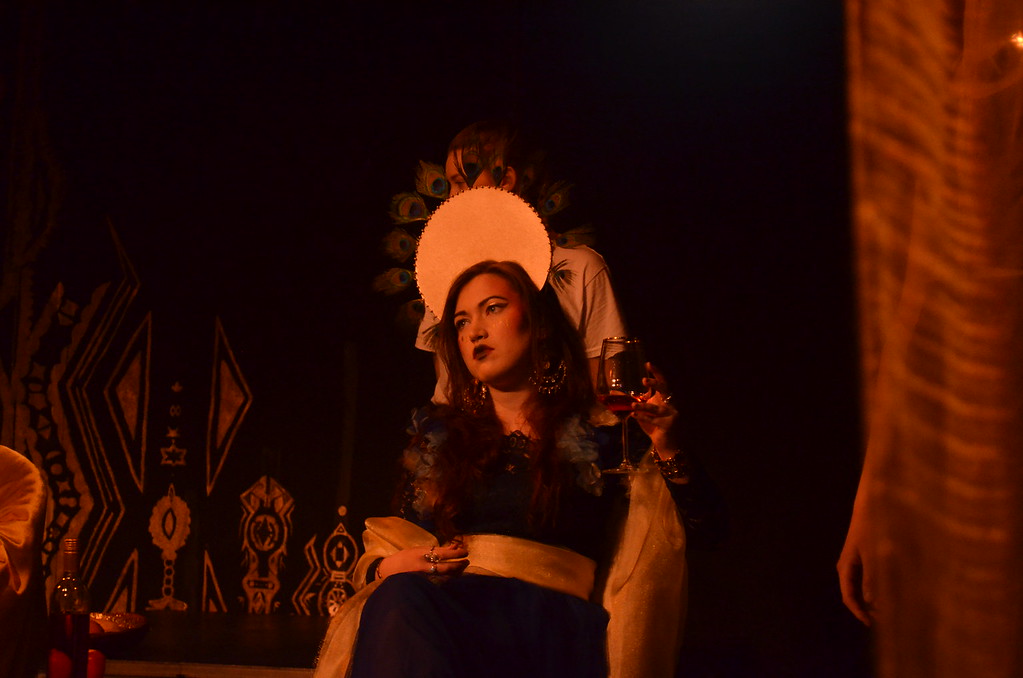
What you can do
- Costume: The actors need to wear something, and you can design, source, or even make it if you’re a dab hand with a sewing machine.
- Props: Have a great idea to rework one of our props into something new? Want to use the workshop to create something new? Join the team.
- Make-up: An art and science, with both natural and stylised looks available in our shows.
Who to talk to
If you’re interested in any of this, want some training, or have any questions, please get in touch with Rose Bardell, Costume, Props and Make-Up Manager.
Marketing and Publicity
Publicity Manager
Being the publicity manager for a show is an integral part of the team, working primarily with the producer to make sure everyone knows about the production.
You’ll be involved in the organisation of publicity such as printing and distributing posters, flyering, social media publicity, and any other novel marking ideas you can think of!
Poster Designer
If you’re a bit of an artist, we’ve got just the job for you. Poster design takes many forms: illustrations, paintings, photography, graphic design - and sometimes all of them together.
Stepping up to the challenge will involve translating the ideas of the director and producer into an eye-catching design.
Who to talk to
If you have any questions or need advice about publicity for a show, do get in touch with .
Set
Set is a key part of any show, helping transport the audience into the world of the play. Whether it’s a few chairs on a desolate stage or a full 1940s apartment loft, we can do it all.
You can get involved in designing a set for a production, or just come along at the get-in to help put it all together!
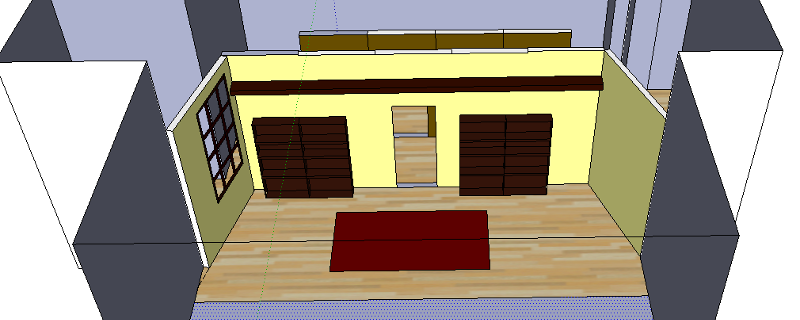
Set Design
As a set designer, you’ll work with the production team to create the visual concept of how the set will be on stage, and make sure it works with any blocking, as well as sourcing materials whilst staying within budget.
Set Construction
If you’re interested in getting your hands on our hammers, spanners, or paints, our set construction team is the place for you.
Don’t worry if you’ve never done anything like it before, we can provide all the training you need.
Who to talk to
If you’re interested in anything set-wise, speak to Xuan Saw, Company Workshop Manager, or join our backstage Facebook group.
Stage Management
Once the show’s get-in is complete, the stage manager’s job really comes to life, making sure the show runs as smoothly as possible. They are in charge of the set and props during the show, making sure everything is where it needs to be.
During the show, you might move around the set and props, sort costumes for quick-changes, or activate special effects like smoke machines.
Why stage manage?
Stage managing is a great way to get involved in the backstage areas of the theatre. You play an important part in the show while developing practical skills such as construction and management - and you don’t need to learn any lines!
Who to talk to
If you’re interested in being a stage manager, please get in touch with , or join our backstage Facebook group.
Tech
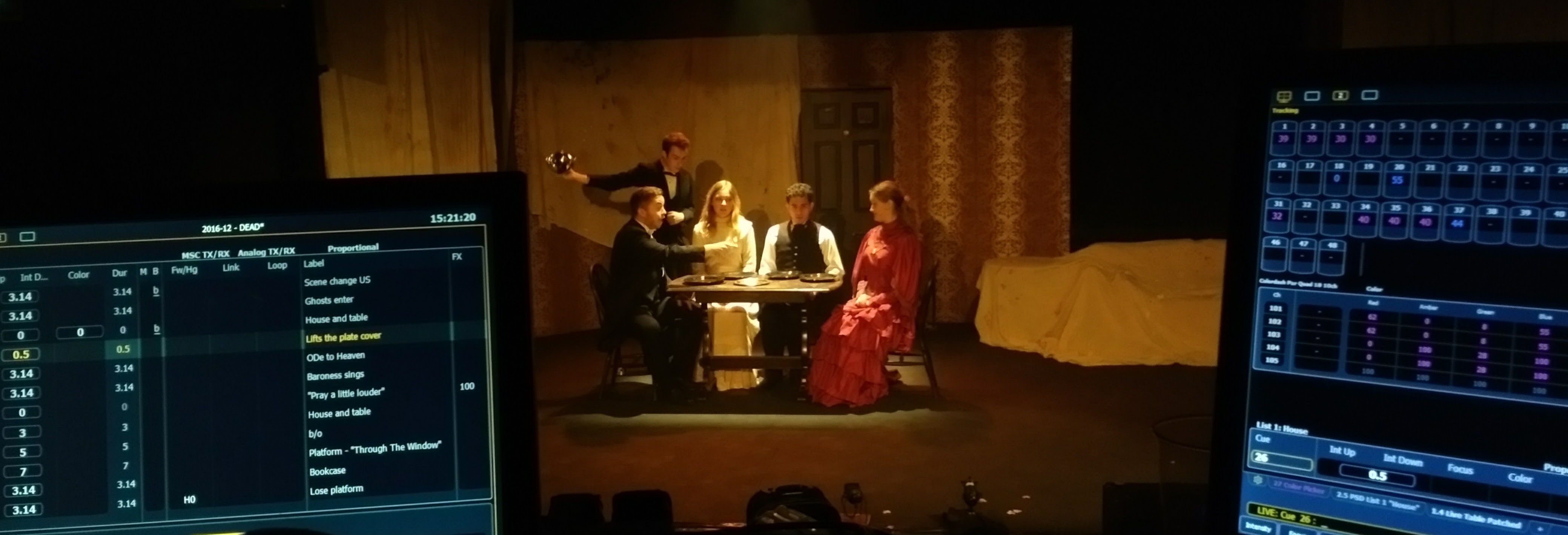
Roles Available
With all those pretty lights, sound effects, and fancy videos; someone’s got to be in charge of it and that could be you.
We’ve got a large and modern stock of technical equipment that is ever expanding, so there’s plenty to sink your teeth into.
Throughout the year, we run extensive training on how to use our equipment, as well as creative workshops from industry professionals on lighting or sound designs.
Being part of the tech team is super rewarding, and you get to be involved with as many productions as you want. You will be working with directors, actors, and set designers to create a spectacular production with lots of fun along the way.
Technical Director
The Technical Director (TD) oversees all the technical aspects of a show, such as rigging, focusing, and organising. They run the technical rehearsals and are often found shouting “Stop!” just before a climactic moment.
The TD is responsible for making sure all of the tech things get done on time, as well as for ‘calling the show’ (following the script and cueing any operators to fire cues, or stage managers to move set).
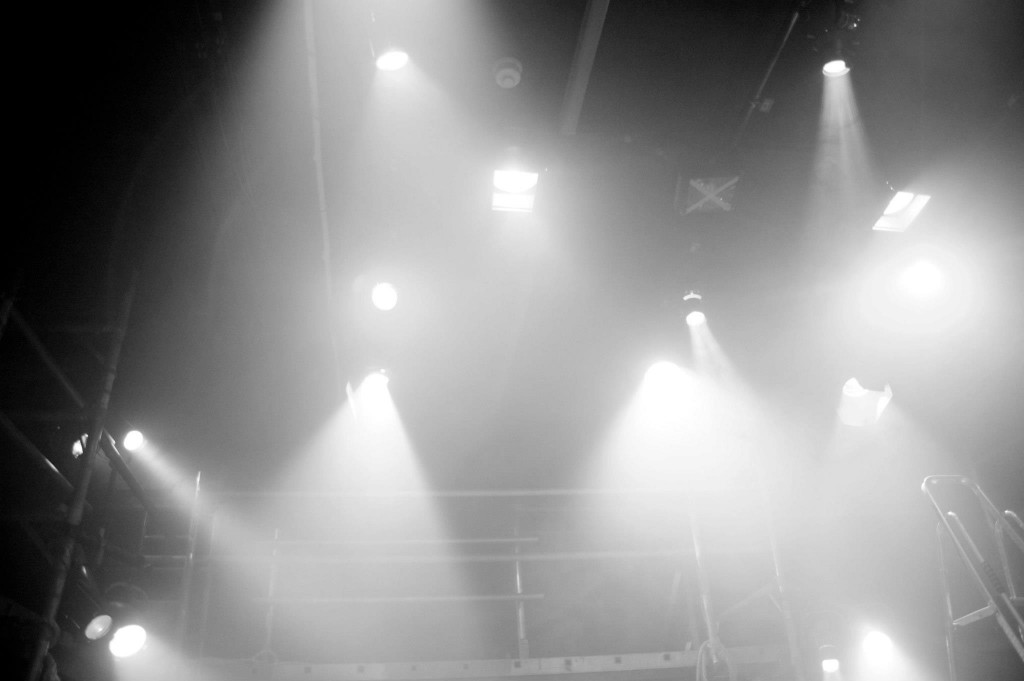
Lighting Design
Using lights, colours, smoke and haze is the domain of the lighting designer (LD). As a lighting designer, you’ll work with the rest of the creative team of a show to create the ‘look’ of the show.
This role combines creative and technical aspects into one to create a visual marvel on-stage. This starts with meeting the director to figure out what they want from the show and how lighting can be used to realise that.
Before the get-in, the LD will make a lighting plan (a diagram showing where all the lights will be in the room and what colour they’ll be). They will then lead the rigging part of the get-in, supervised by the TD.
Once it’s all in the air, it’s time to focus (point the lights in the right direction) and plot (program the cues into the lighting desk).
Sound Design
Some shows want some sound effects, others want underscores, and some even benefit from composition work - all of which fall under sound design.
We’ve got many speakers that sound designers (SD) can use to tackle designs from small to large scale, with shows using up to 7 speakers for a fully immersive sound scape.
Getting started in sound design involves meeting with the director and often watching a rehearsal to figure out how sound can help make the show better, and where you can (or can’t) put speakers.
During the get-in, you’ll install the speakers and focus them (point them in the right direction) to achieve the sound you’re looking for. Then it comes to programming, where you can realise your design.
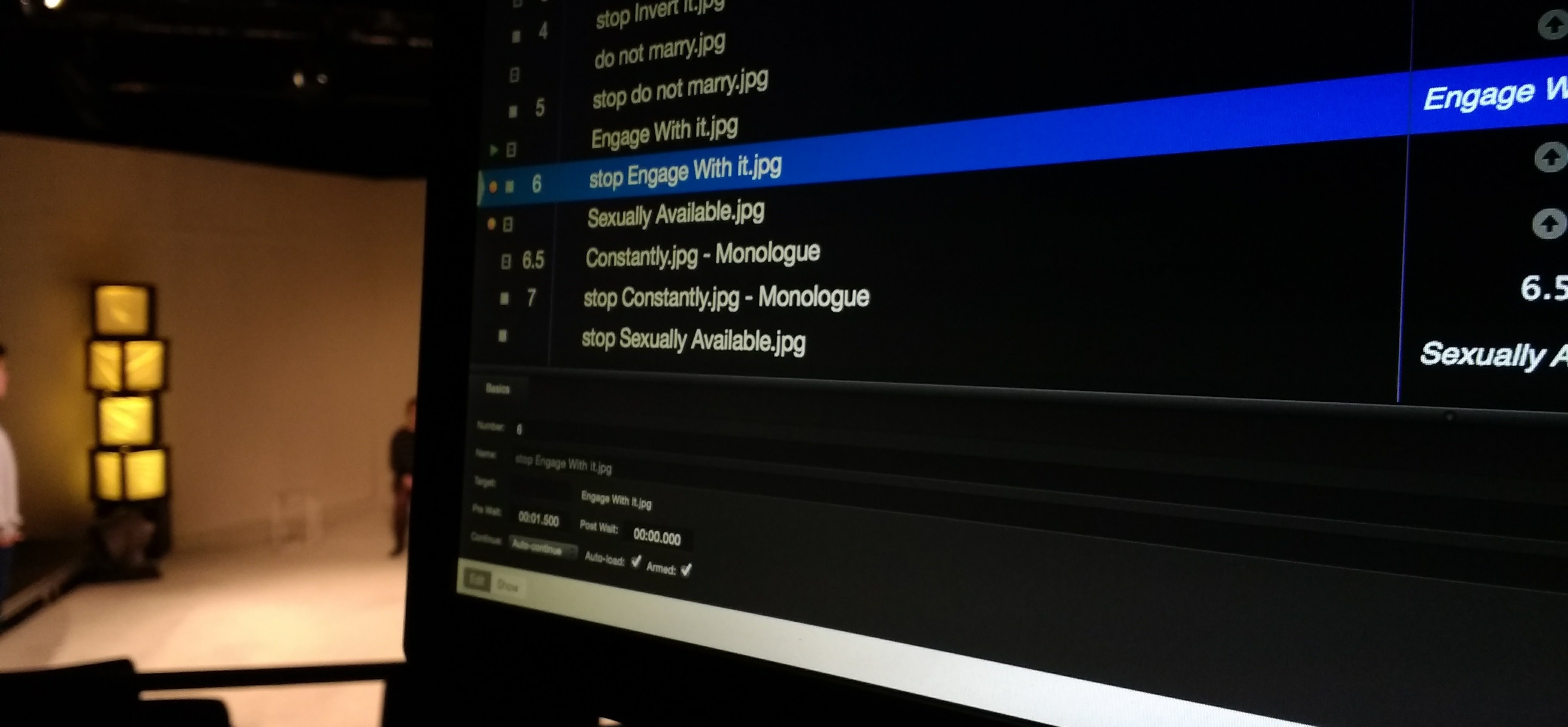
Video Design
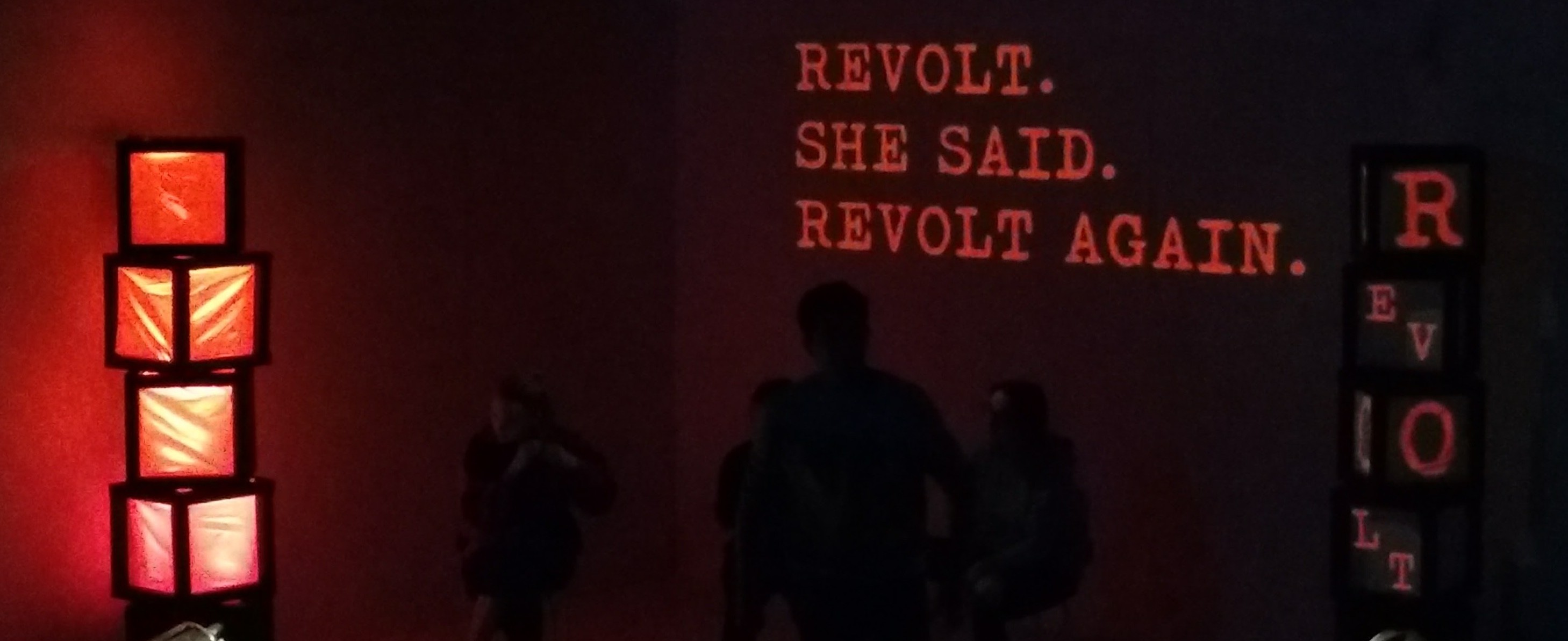
A stunning video design can help a show really stand out amongst the crowd. We can do anything from projecting onto a screen at the back of the stage to unique mapping around smaller set pieces, whatever your imagination can come up with.
Some shows may just want to use premade content, such as existing TV clips, where as others may create their own hand drawn backdrops or animations.
At the get-in, you’ll rig any projectors and screens you might need, followed by focusing (pointing the projector(s) in the right place), mapping (making the image fill the surface), and programming (making the content actually appear).
Operators
Operators of a show sit at the tech desk with the Technical Director to run the show. They press the ‘Go’ button to fire any lighting, sound or video cues during the show.
This is a great place to start out in tech and full training is provided. Sign ups to be an Operator can be found on the Tech Facebook group every week.
Who to talk to
There is no experience necessary to be part of the tech team, just enthusiasm and a will to learn. If you think this sounds like something you want to do, or you’d like some training, contact .
We also have an active Tech Facebook Group where any opportunities or announcements are made.
If you’re interested in any of this, want some training, or have any questions, please get in touch with or Ben Bromley, Technical Manager
Come and get involved!
